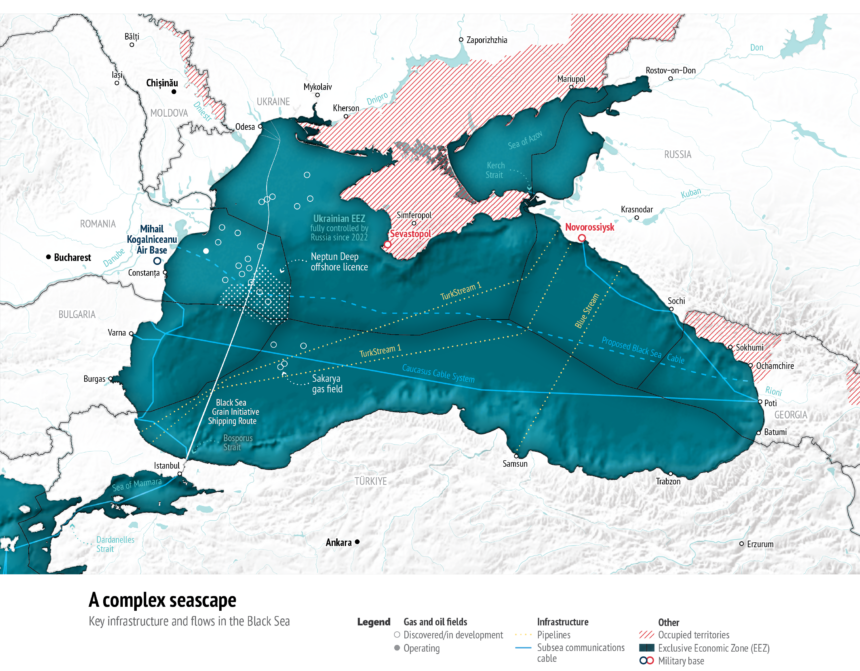Summary and Additional Remarks by Geopolist | Istanbul Center for Geopolitics:
The Black Sea has evolved as a vital geopolitical hotspot, attracting important regional and global actors including the EU, Ukraine, Russia, and Turkey Russia’s ongoing war with Ukraine has dramatically increased regional tensions, with Moscow trying to exert supremacy over the Black Sea by using its military position in Crimea. This ambition directly challenges regional stability, prompting the European Union to develop a strategic approach to securing maritime, energy, and agricultural resources, underlining the importance of a comprehensive Black Sea policy.
The study presents four possible scenarios for the development of the Black Sea region during the next decade. The first scenario, “Lake Interregnum,” depicts the continuance of the existing conflict, with unsolved clashes between Russia and Ukraine. This scenario depicts a hazardous security situation in which regional procedures are ineffective, resulting in persistent dangers of violence and instability. The second scenario, titled “Russian Lake,” depicts a dismal future in which Russia obtains supremacy through military advances and political manipulation. This would reestablish a Cold War-style dynamic, with Russia gaining control of the Black Sea region and its littoral states. In contrast, the “European Lake” scenario presents a more optimistic vision, with the EU and NATO securing the region through strategic collaboration. Ukraine has regained control of Crimea, and improved regional security leads to increased wealth and stability. The third scenario, “Lake Glacialis,” illustrates a probable stalemate that could lead to a larger regional battle, demanding a new security management system resembling Cold Battle-era architecture.
In all of these possibilities, the EU’s strategic position is critical to determining the region’s future direction. The statement underscores that the EU must aggressively resist Russian expansionism by strengthening Ukraine’s defenses, increasing regional situational awareness, and developing resilience to hybrid threats such as cyberattacks and disinformation efforts. To accomplish this, the EU’s future strategy might involve increasing naval and missile defense capabilities, safeguarding maritime infrastructure, and working with NATO to maintain a coordinated marine presence in the Black Sea. This comprehensive approach tries to steer the region away from the “Russian Lake” scenario and toward the “European Lake” conclusion, which prioritizes regional security and cooperation.
Finally, the EU’s sustained support for Ukraine, as well as its proactive strategic planning, are critical to preserving the Black Sea region’s future security and cooperation. By tackling Russia’s multiple security issues and promoting regional stability, the EU hopes to transform the Black Sea into a zone of peace and prosperity. This would benefit not only the littoral states, but also the larger European security framework, making the Black Sea an essential component of a more secure and integrated Europe.
Read more.







